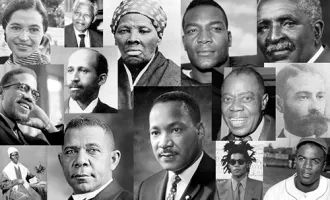This Date in UCSF History: Can Love Win?
Originally published on February 11, 2010.
Is love possible between two people with opposing political views? New York City held its breath when Ann Coulter (Freason, Slander, Godless are just some of her books excoriating liberals) started dating Andrew Stein (a prominent lifelong New York Democrat), but they soon broke up over “irreconcilable differences.”
In contrast, California’s first couple, Schwarzenegger and Shriver, have been going strong since 1986 raising four children (of unknown political persuasion).
There are relatively few other famous examples; the more common situation is politics energizing a marriage and helping keep it together such as Bill and Hilary Clinton.
Over the years there have been over ten married couples in Congress, none have crossed the aisle. Love can conquer all but having radically different politics presents a challenge.
Conduct a thought experiment. Imagine all you know about a person before a date is that they have voted for someone other than your preferred candidate for President in
the last three elections.
If you think spirited debate instead of sour disagreement, then you are in the minority.
The key point reported by those in interparty relationships is that there not be a deal breaker conflict on an issue that matters.
The most commonly cited hot button position is pro-life vs. pro-choice.
Although a 2008 online survey at the now defunct dating site, engage.com, reported that 85% of the respondents were open to dating a member of another political party, the truth is that most relationships start with some other attraction and then the potential incompatibility is revealed as the couples spend more time with each other.
Since most relationships will not last forever, it is not likely that politics is the sole cause of any breakup, but probably just another ingredient in the stew of disagreement that causes two people to go their separate ways. Not surprisingly the advice one gets for keeping politics from messing with love is similar to recommendations for dating outside of one’s religion:
• Know yourself and how flexible you can be.
• Do not cross the line and personalize any attacks on the other person’s ideas.
• Explore your differences but focus on what you have in common.
Sherry Amatenstein, an author of how-to dating books, quotes psychotherapist Toni Coleman, “Look to what the two of you have in common — and judge the relationship for its shared goals, similarities of lifestyles, basic values, and compatibility.”
Finally consider a paper, “Political Similarity and Influence Between Husbands and Wives,” by M. Kent Jennings and Laura Stoker of UC Berkeley; it suggests that the common experience of being a couple leads people to grow together in their political attitudes and that influence increases with time.
So you may start out different, but if you stay together, you may find yourself agreeing more and more with each other.



